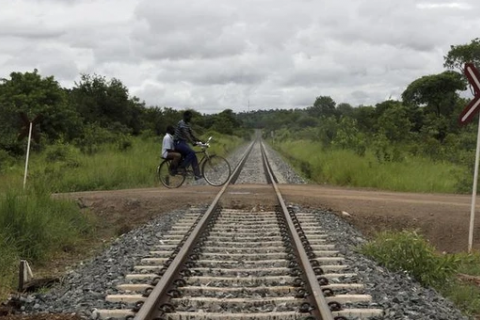"Djaimilia Pereira de Almeida: Tecelã de Mundos Passados e Presentes" is the name of the work, coordinated by two researchers, Sandra Sousa and Sheila Khan, the latter also a writer, alongside the research she carries out, as a sociologist, focusing on postcolonial studies.
"It is the first work by an Afro-descendant writer, with experience in the space of the European African diaspora, in this case Portuguese society", said Sheila Khan to the Lusa agency, highlighting that this "is a first book dedicated to an already consolidated work, which in a certain way, it opens a door to studies of literature of African descent".
And she continued: "It is not a literature closed in itself, it is a literature very committed to the duty of hospitality, fraternity, of opening spaces for dialogue, of relationships between the past and the present."
Through this work from the Center for Communication and Society Studies at the University of Minho, the authors demonstrate how Djaimilia is approaching "social realities" and doing work on "thinking about social reality".
"Djaimilia's work, based on fiction and essay literature, is a contribution to studying, analyzing and mapping our realities," she said.
For Sheila Khan, Djaimilia makes this work "from literature, mapping, contemporary social thought", along with "an incursion into the past, through her characters, which she brings to the present".
Regarding the most recent book by the writer of Angolan origin – the essay "O que é ser uma escritora negra hoje, de acordo comigo" – Sheila Khan states: "It is a mapping, a sociological, historical and anthropological treatise on who we are, what our importance of our past, of studying this past and the importance of bringing this past into the space of Portuguese civil society".
"If I were my great-great-grandmother, a black woman with hard hair, and my destiny would be the whip. To be a black writer today, according to me, a woman of this time, is to write against that fact, carrying it on my back, without letting it hinders me", writes Djaimilia in this essay.
"She is so creative, with a sense of multiplicity, that none of her books is a repetition or a synthesis of the previous one, she always brings new layers to better understand what this Portuguese-speaking post-colonial Portugal is", continued Sheila Khan.
With this publication from the University of Minho, the researcher and writer hopes to contribute to opening a door to Afro-descendant literature, thought and tradition.
And about writers of African descent, she says that they arrived in Portugal at a very young age, with their parents, and have already grown up in "Portugal after the 25th of April".
"They grow up in Portuguese society, but they realize that they live in this duality, in this ambivalence. Often due to their characteristics, they are seen as not Portuguese, being Portuguese; however, they do not have much of an umbilical relationship with the original spaces of their parents, but They live a lot with memories, experiences made through transmission, through recording of rituals – in terms of gastronomy, music, clothing – which they absorb and welcome into themselves".
These people of African descent "are realizing that they also have a voice, a thought, which can be rich, not only for them, like subjective marketing, but rich in the sense of challenging social thought and saying that there is no single story, there are several stories , there is not just one way to tell the story of Portugal, Mozambique or Guinea-Bissau, or Angola, in the case of Djaimilia, but several stories that have to be present".
"It's a generation that isn't tied to their parents' generation," he said, explaining that this prison is one of survival, of having money to pay the bills – which naturally also concerns this generation – but it doesn't have the same urgencies as the older generation. previous one, who had to start over again, come to a country that, despite having the same language, was a country that found them strange".







